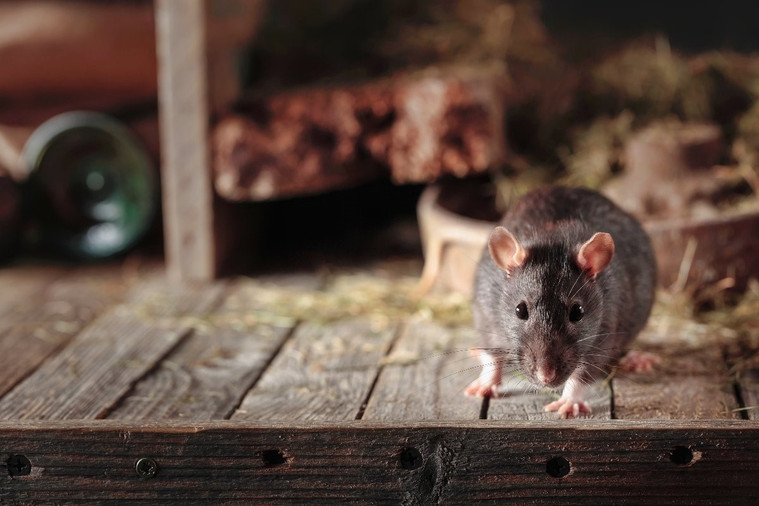Preparing Your Barn For Winter: Farm Pest Management
Nov 18, 2021
Pests can cause significant damage to your barn and livestock. While they’re a year-round nuisance, winter poses unique pest management challenges.
Learn more about the most common winter pests and how you can prepare your barn to help prevent infestations.
Common Winter Farm Pests
While some insects are still active during the winter, in most climates, they are much less of a nuisance. Instead, rodents become the biggest threats to your livestock.
When the temperature drops and the weather conditions become severe, rodents will seek the warmth of indoor shelter, particularly inside of homes, sheds, greenhouses, and barns. There are three common types of rodents to watch for during the winter:
Mice
Two types of mice are most common in barns: house mice and deer mice. Both types can rapidly infest barns, causing a large amount of structural damage, ruining livestock feed, and spreading harmful pathogens.
Rats
Norway rats, also commonly known as “brown rats” or “barn rats”, are the most widespread species of rat across the world. There’s also the most common rat you’re likely to encounter infesting your barn. They live an average of one year in the wild. A population of only two can grow to 15,000 within a year under the right conditions.
Squirrels
While a less common pest nuisance than either mice or rats, squirrels are another type of rodent that may retreat to the warmth of your barn. A full-blown squirrel infestation is unlikely, but even a single squirrel taking refuge inside of your livestock facility can cause damage to wood, fabric, and wires.
Preventing Barn Pests This Winter
Keeping winter pests out of your barn isn’t easy. However, there are several things you can do to limit an infestation from starting and growing out of control.
Prevent Easy Entry Into Your Barn
The first step to pest management is keeping them from getting inside your barn to begin with. This is easier said than done.
Before winter arrives, be sure to carefully inspect your barn structure, including doorways, windows, and any other potential entry point. Look for cracks and holes rodents may be able to enter. Many rats, particularly younger ones, can fit through holes the size of a quarter. Mice can fit through holes only a quarter inch across.
Seal gaps with caulk or another sealant, and consider replacing older windows and doors that may not close properly.
Lastly, inspect your barn ventilation. Be sure to cover any unused vents or fans. Check that shutters are sealed. Also look for and fill any structural gaps. These tips are helpful for not only pest prevention, but winterizing your barn for colder weather.
Perform A Deep Clean And Limit Clutter
Rodents love clutter. It serves as an excellent nesting attractant. As you prepare for winter, look for opportunities to declutter and organize your barn. Not only does this limit nesting locations for pests, but it helps improve safety and reduce fire risks.
You should also regularly check livestock feed stores. Be sure they aren’t leaking and sweep up and remove any excess feed. If left unchecked, unattended feed will attract rodents.
Alongside clutter inside of your barn, be sure to remove objects away from your barn’s exterior. This can include trash bins, lumber stacks, and unused farm equipment. These can serve as hideaways for rodents and other pests.
Lastly, mice are attracted to compost heaps. These provide a source of shelter, warmth, and food. Always store compost piles and bins away from your barn or other buildings to prevent mice from moving in.
Reduce Rodent Populations
Even if you’ve sealed every hole you can find, cleaned, decluttered, and reorganized your barn, rodents can still manage to find their way in. While these measures can help limit the initial rodent infestations, and prevent them from quickly growing out of control, it’s still important to cull their population.
There are two methods for reducing rodent populations: mechanical traps and chemical rodenticides.
Mechanical Traps
There are a number of mechanical rodent traps available: the most common, and simple, are spring traps. While spring traps are effective, they’re inefficient. They require regular inspection and resetting to kill rodents. Glue traps offer another simple alternative, but, like spring traps, are also inefficient.
Larger commercial grade traps, like electric and live capture traps, are another option. However, rats are known to avoid traps altogether.
Chemical Rodenticide
Rodenticides rely on chemicals, most commonly anticoagulants, to efficiently kill rodents. The most common type of rodenticide are bait pellets. If you decide to use bait, always be sure to only use them in areas where livestock can’t access. In addition, never use bait outside of a station.
The Dangers of Winter Barn Pests
Pests, particularly the rodents that are prevalent during winter, can cause a lot of problems for farmers.
Structural Damage
Rodent infestations can damage fabric, electrical, wood, and insulation. Damage to electrical systems can pose a significant safety risk and is a potential source of fires. One estimate suggests that rodents gnawing on gas lines and electrical wires is the cause of 25% of fires attributed to “unknown causes.”
Livestock Feed Waste
Rodent infestations can also lead to the destruction of animal feed. A pair of mice will eat around 4.4lbs of feed a year, while a single rat can eat as much as 20-40lbs of feed a year.
Disease
Rodents also pose a major biosecurity risk. There are 45 known diseases carried by rodents that can be transmitted to livestock. There are also several diseases rodents can transfer to humans as well.
Pest Control Supplies At Farmer Boy
Before winter pests become a problem, be sure
you have everything you need to keep unwanted critters out of your barn.
Farmer Boy has a wide selection of pest management supplies, from bait stations
to building materials, to help you prevent winter pest infestations. Shop our
full online inventory to find what you need.


